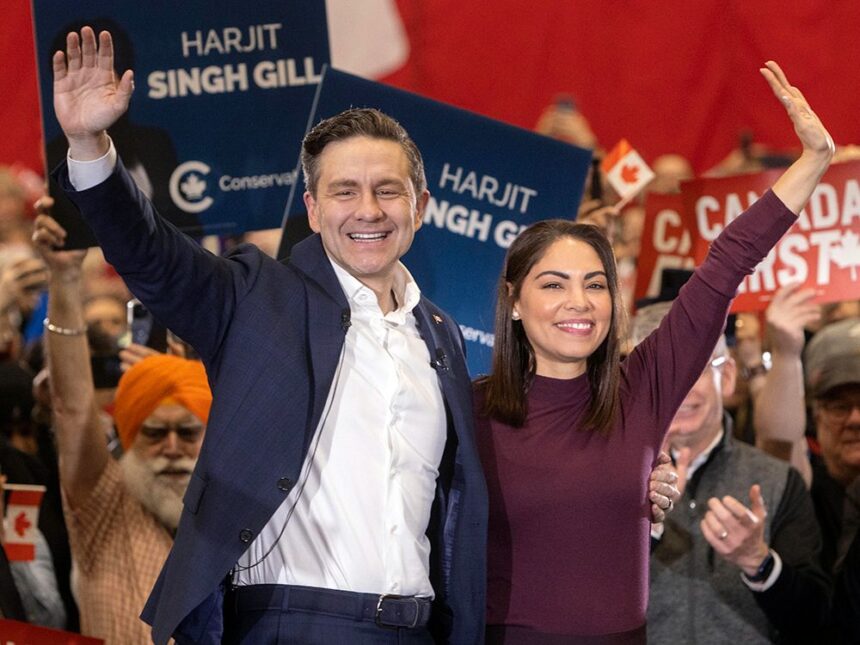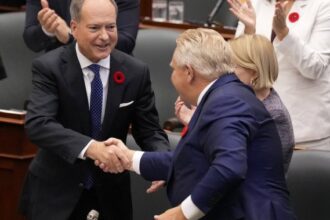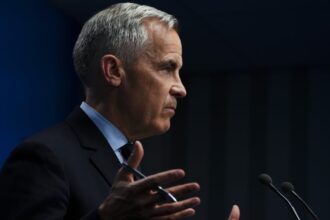Trudeau Exit Reshapes Poilievre’s Path to Power in Unpredictable Election Landscape
In a dramatic shift that has reverberated through Canada’s political landscape, Pierre Poilievre’s carefully crafted election strategy faces an unexpected recalibration following Prime Minister Justin Trudeau’s surprise exit from Liberal leadership. The Conservative leader, who had spent years positioning himself as the antithesis to Trudeau’s governance style, now confronts a transformed electoral battlefield that may require substantial tactical adjustments.
“Poilievre built his brand on being the anti-Trudeau,” explains Dr. Alexandra Moreau, political science professor at Queen’s University. “With Trudeau leaving the stage, he’s lost his primary foil and must now recalibrate against new Liberal leadership that doesn’t carry the same political baggage.”
Poilievre’s Platform and Public Reception
Throughout his tenure as Conservative leader, Poilievre has meticulously constructed a problem-solver persona, promising straightforward solutions to complex economic challenges while characterizing Trudeau’s government as detached from everyday Canadian struggles. His campaign rallies consistently drew substantial crowds, with speeches targeting inflation, housing affordability, and what he terms “gatekeepers” impeding economic progress.
The Conservative economic platform, centered on promises to tackle housing costs, reduce government spending, and eliminate the carbon tax, has resonated with an electorate increasingly concerned about cost-of-living pressures. Recent polling suggests this approach had been gaining traction before Trudeau’s announcement, with the Conservatives enjoying a comfortable lead over the Liberals in voter intention surveys.
Strategic Uncertainty Following Trudeau’s Exit
However, political analysts suggest the leadership transition has injected unexpected uncertainty into what many considered a relatively predictable election trajectory. “The Conservatives now face the challenge of adapting their message for a contest where their primary opponent has changed mid-game,” notes Samuel Richardson, chief analyst at the Canadian Electoral Studies Institute. “This isn’t the campaign they’ve been preparing for.”
According to CO24 Politics analysis, Poilievre’s team has already begun adjusting communication strategies, pivoting from personal critiques of Trudeau to broader criticism of Liberal policies and governance approaches. This shift acknowledges that while faces may change, the Conservative argument centers on systemic policy differences rather than personality conflicts.
Economic Issues Remain Central
Economic indicators published in recent CO24 Business reports suggest Canada’s inflation challenges and housing affordability crisis remain significant voter concerns regardless of Liberal leadership. Poilievre continues emphasizing these issues, maintaining that Liberal economic management requires complete overhaul rather than mere leadership adjustment.
“Canadians are still feeling the squeeze from eight years of Liberal policies,” Poilievre stated during a recent campaign stop in Saskatoon. “The fundamental problems facing working families haven’t changed with one resignation announcement.”
The Conservative leader’s background as a former employment minister and finance critic has shaped his economic focus, lending credibility to his frequent discussions of fiscal policy. His campaign promises include balanced budgets within specified timeframes and significant deregulation to stimulate housing construction.
Demographics and Electorate Trends
Demographic analysis suggests Poilievre’s messaging has penetrated beyond traditional Conservative voter bases, with particular inroads among younger voters struggling with housing affordability and economic instability. Conservative strategists believe these gains could prove decisive regardless of who leads the Liberal Party into the election.
“This election will ultimately be decided on kitchen table issues,” explains Conservative campaign strategist Margaret Wilson. “Canadians are concerned about their economic future regardless of which Liberal is making the promises.”
Looking Ahead
As the election landscape continues evolving, Poilievre faces the delicate balance of maintaining his established campaign momentum while adapting to a fundamentally altered competitive environment. The coming weeks will determine whether his economic focus and problem-solver positioning can withstand the significant reset in Canadian political dynamics following Trudeau’s departure.
With polls suggesting many voters remain undecided and election day approaching, one question increasingly dominates political conversations across Canada: Will Poilievre’s carefully constructed campaign narrative maintain its resonance against new Liberal leadership, or has Trudeau’s exit fundamentally altered the political calculation that Canadians will make at the ballot box?










